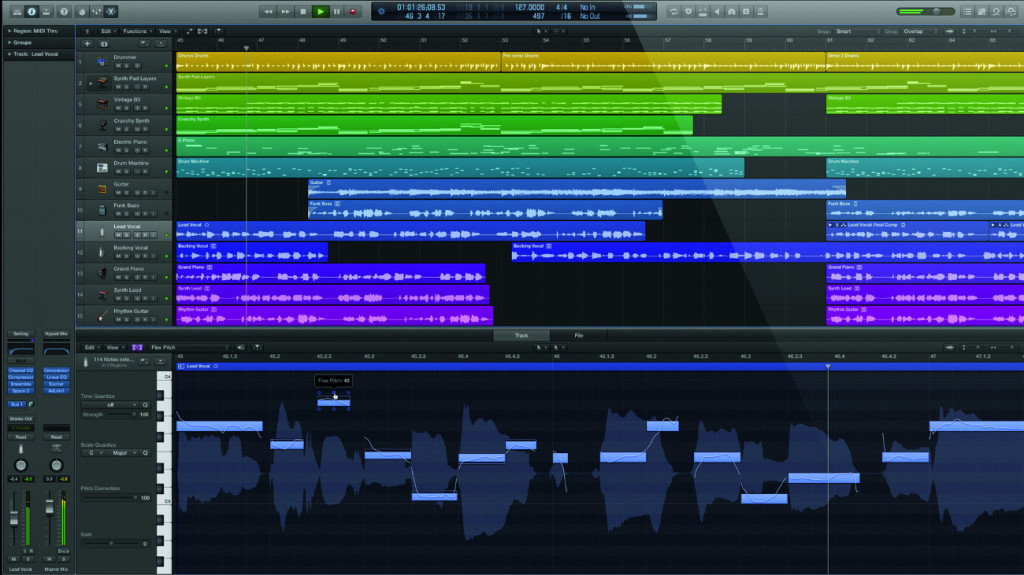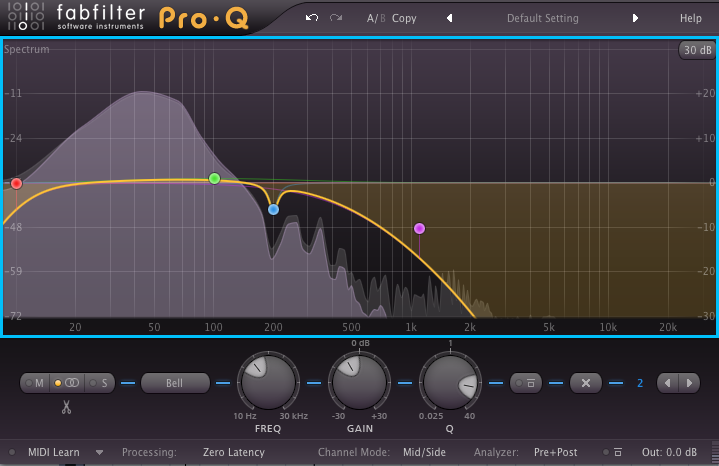Early in 2014 Mike Hawkins‘ hit single “Soldiers” saw plays reaching far into the millions with support from numerous DJs across the globe. Mike recently released a follow-up single called “Revolt” on Sander van Doorn’s imprint, DOORN Records and has just completed a debut North American tour. We took a moment to catch up with him to learn more about his production workflow while on the road, favorite production tools, projects with collaborators, and more.
Nate Mars: Can you tell us about what projects you have been working lately? I know you have the new release that just came out on DOORN.
Mike Hawkins: I’ve been working on just basically a ton of solo stuff. I’ve had that new track on DOORN, as you mentioned, “Revolt,” which has been a work in progress for quite some time. Then besides that just working on finishing up other tunes… Experimenting lately, trying a lot of new things. I’m doing a collab with Jay Hardway right now, and I’m working on some remixes and so on, on the road. I’m doing a lot of “studio” work right now that’s not actually in the studio.
Nate: So you are doing a lot of work on the road while you’re traveling? What is that process like for you?
Mike: I work in Logic. When I started out I worked in FL Studio. That was how I got into everything five or six years ago, but it felt a little unnatural for me to work in after a while so I switched to Logic three years ago and that’s been my main DAW ever since.

Nate: What was that thing that made you transition from FL studio to Logic?
Mike: Logic felt more musical to me somehow. It felt like there was more overview of what you were doing. FL Studio felt very much like a sequencer, a little bit novelty‑ish. I know that’s not the case because I have many friends who are making absolutely fantastic productions with it, but it didn’t feel right for me. Everybody has different environments and different work styles, work thoughts, and so on. It was the best thing.
Nate: Can you tell us about the collab with Jay Hardway on “Spinnin‘.” How did that came about?
Mike: It started out with Martin Garrix asking me to remix “Wizard,” his collab with Jay. I was working on that, and I finished the remix in five or six days, actually. It came out, and Jay and Martin liked it a lot. I got in touch with Jay through that remix. It was really good, and we met up.
Rarely, you have really, really great chemistry with people you’ve never been together with, but for some reason with them it just worked out great. We got together in the studio in Dublin and tried out some stuff. It felt very natural. It felt like an equal combination of both our sounds and genres, in a sense. It just merged. We did one half face‑to‑face, and we did a bunch of work away from each other, just on each of our laptops, and got back together and finished it again in another five months.
Nate: What was one of the first things you noticed about working with Jay? Was it difficult to work remotely vs. in person?
Mike: One of the main issues or obstacles, if you will, is trying to keep the workflow going with artists without actually sitting next to each other and without actually being able to collaborate in real time. When you’re just passing stems back and forth, it gets very uncreative. It becomes like a big…I don’t know.
Nate: You think it’s because you’re locked in sharing stems, instead of being able to share session files?
Mike: Yeah. It’s a workflow thing. You’re not being actually creative. You’re worrying about things you shouldn’t be worried about, like having to render stems and render small ideas all the time. Jay might tell me that he thinks this bounce has too much reverb, or I’m telling him I think we should change the sound of the kick drum or whatever. Instead of actually being able to do it, you have to compromise more and it’s hit and miss. That’s also why we ended up just meeting up together and finishing everything.
Nate: What are some of your go to plugins that you find yourself using in every session?
Mike: I use all of FabFilter stuff. Yeah. I used to use Waves quite a lot but I find myself using it less and less for some reason. I’m not sure why. I use a ton of Native Instruments plugins. All of their Reaktor modules are amazing!
Nate: Going back to FabFilter for a second, do you find yourself using Pro‑Q more than you are logic native EQ?
*Note – You can check out some projects on Splice using these plugins by clicking on the links above.
Mike: Yeah, for sure. I never use Logic’s native EQ. Actually, I never use Logic’s native plugins to be quite honest. I think they suck. I use the echo from Logic and that’s pretty much it. I don’t like working with Logic’s native plugins because if I feel like working with a compressor, for instance, it [Logic’s] becomes non‑musical. Whereas if I work with different compressors, I can make it a part of the game. Like the FabFilter Pro‑Q I can actually adjust and widen and narrow the bands and make as many bands as I want. Whereas I think working with the Logic EQ it becomes a lot of clicking and a lot of turning knobs that are not actually there.
There’s nothing I hate more than having to click with a mouse and hold the mouse up or the track pad or whatever to turn a knob. It doesn’t feel natural. It feels like you’re trying to adapt one interface to simulate another.Whereas what I think FabFilter is doing great is they’re actually taking advantage of the fact that you’re using a track pad or you’re using a mouse. They’re not trying to disguise their plugins as if it’s an analog emulation with a million knobs and things to turn. They’re just taking advantage of the hands on model. That’s why it feels natural to use it.
Nate: If you had to pick one track to play for someone who hadn’t heard your music before and you were going to give them an introduction to your music, do you know what you would pick first?
Mike: [laughs] I would pick my remix of Zedd’s “Find You.” The “Soldiers” track is cool but it’s a club thing. I’m surprised it blew up that much. I’m very happy about it and I really dig the track, but it’s very much like a club track. I think it’s really cool. It sounds very fresh and stuff, but I’m a very melodic person. I love harmonies and I love just playing around with melody. I’ve done everything from really slow ambient chill out stuff to…I’m doing a remix right now at 150 beats per minute.
Nate: Any words of wisdom to share?
Mike: I think that I’m going to go super meta here. One of the biggest issues is actually the words of wisdom. If I can give a word of wisdom, it would be to not listen to any of them. One of the biggest problems for most producers is, they don’t have the chance to just bug out and be themselves. They should have fun. When you start out, you’re going to inevitably rip off a ton of artists. You’re going to make music that sounds like everyone else, everybody’s been there. People actually sometimes tend to forget that copying is how we learn, how we develop, how we learn to play. Growing up, that’s how they learn from their mothers. They copy their language, they copy their facial expressions and so on. A lot of people aren’t going to tell you how you have to always be original or always try to push the limits. Somebody that, you have to be yourself or something like that. The most important thing is to actually just not care that much, and do whatever comes natural. When you’re doing music, if you feel like copying another track, then copy the track. That’s how we learn.
For me, especially coming up, there’s a lot of shot calling and a lot of constant worrying in my music. Does this sound original enough, or is this cool enough? Maybe this doesn’t sound good enough, and should sound different like this. You’ll have a million different people telling you a million different things about how you should be doing your music, when in reality there is no right and wrong way. Just do whatever it is you actually feel like doing, and try not to worry too much. It will come, eventually. It comes for everybody. Some sooner, some later, but as long as you just have fun with it, that’s what being creative is about.
About the Splice Artist Series:
We empower music creators to create and collaborate fearlessly. Our goal is to build the best platform possible in order to enable that process. We hope that you learn just as much as we do, hearing from artists about their workflow and how they collaborate. Most importantly after reading, we hope you are inspired to make music!
August 12, 2014




